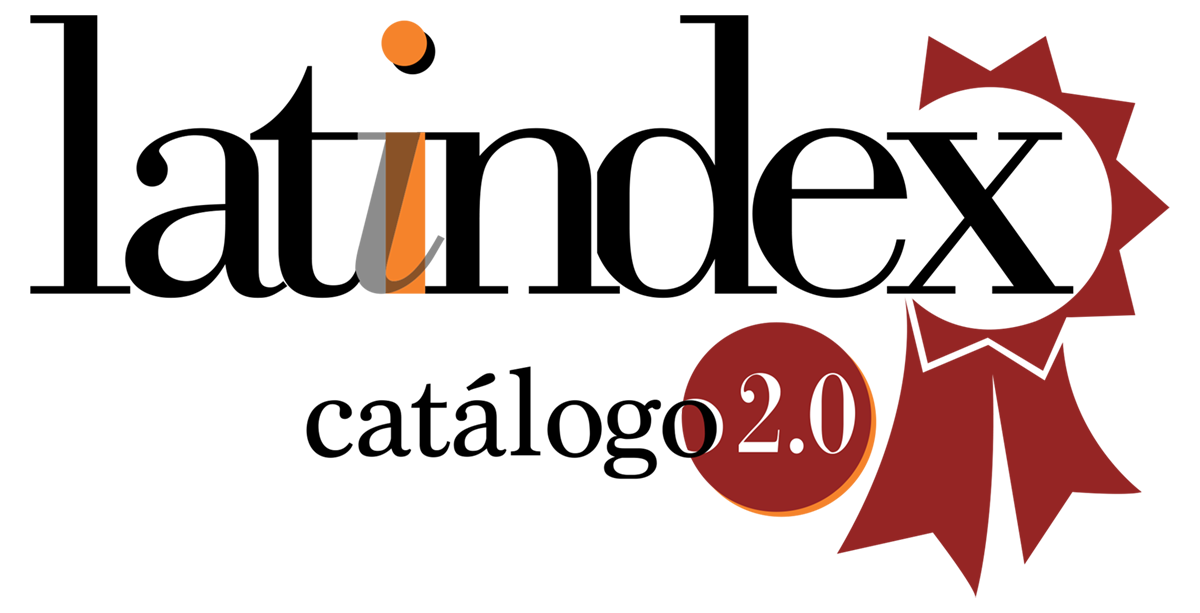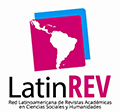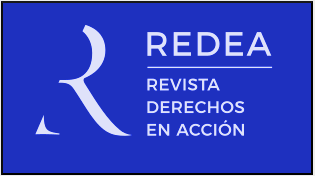El FMI y la pandemia: Una historia del fortalecimiento de la financiarización y la complicidad con las violaciones de derechos humanos
DOI:
https://doi.org/10.24215/25251678e493Resumen
La pandemia nuevamente condujo al FMI al centro de atención mundial, considerándolo el bombero del sistema financiero internacional, en el núcleo de la red de seguridad financiera global. Para el observador casual el FMI parecía actuar decisivamente, movilizando apoyo financiero para sus Estados miembros mientras subrayando la urgencia de asegurar una respuesta y recuperación justa, inteligente y verde a la pandemia. Pero un análisis del papel del FMI durante la pandemia revela las deficiencias de su propia respuesta y del sistema financiero global en general. En realidad, las crisis de salud, económica y social exacerbadas por la pandemia dejan claras las consecuencias de décadas de apoyo del FMI y de la arquitectura financiera internacional a un proceso de financiarización que ha limitado y sigue limitando la capacidad de los Estados de cumplir con sus obligaciones internacionales en materia derechos humanos. Contrario a la imagen positiva que el FMI viene cultivando, su posición en términos de derechos humanos no ha cambiado, con los predecibles resultados de sus programas. Como lo demuestran el Marco Común para los Tratamientos de Deuda y el análisis de la sostenibilidad de deuda, el FMI sigue evitando la incorporación de consideraciones de derechos humanos en sus programas y actividades, insistiendo en la separación artificial —dentro de su ‘universo’— entre materias que son económicas de aquellas que son políticas.
Referencias
ACTIONAID (2020). Public Services International, Covid-19 crisis: IMF told countries facing critical health worker shortages to cut public sector wages , Disponible en <https://actionaid.org/news/2020/covid-19-crisis-imf-told-countries-facing-critical-health-workershortages-cut-public>.
ALSTON, Phillip (Relator Especial) (2018). Report of the Special Rapporteur on extreme poverty and human rights on the International Monetary Fund and its impact on social protection, Human Rights Council, A/HRC/38/33. Disponible en <https://www.ohchr.org/EN/Issues/Poverty/Pages/InternationalMonetaryFund.aspx>.
ASAMBLEA GENERAL (1974). Declaración sobre el Establecimiento de un Nuevo Orden Económico Internacional, ONU A/RES/3201( S-VI). Disponible en: https://digitallibrary.un.org/record/218450?ln=en
BONIZZI, B. (2013). “Financialization in Developing and Emerging Countries”, 4 International Journal of Political Economy, , vol. 42, 83-107, DOI: 10.2753/IJP0891-1916420405 Ichiro Kawachi y Bruce P. Kennedy, “Income inequality and health: pathways and mechanisms.” Health Services Research, 1999; 34(1 Pt 2): 215–227. Disponible en: https://www.ncbi.nlm.nih.gov/pmc/articles/PMC1088996/pdf/hsresearch00017-0022.pdf
BONIZZI, B., “Financialization in Developing and Emerging Countries”, 4 International Journal of Political Economy, 2013, Vol. 42, 83-107, doi: 10.2753/IJP0891-1916420405
BANCO MUNDIAL (2020). COVID-19: Los flujos de remesas se reducirán un 14 % en 2021. Disponible en: https://www.bancomundial.org/es/news/pressrelease/2020/10/29/covid-19-remittance-flows-to-shrink-14-by-2021
BELHASSINE, Olfa (2019). Tunisia’s Truth Commission vs. France, the IMF and World Bank, Committee for the Abolition of Illegitimate Debt. Disponible en < http://www.cadtm.org/Tunisia-s-Truth-Commission-vs-France-the-IMF-and-World-Bank>.
BRETTON WOODS PROJECT G20 (2020). Debt proposal continues to favour creditors, Bretton Woods Observer Disponible en https://www.brettonwoodsproject.org/2020/12/g20-debt-proposal-continues-to-favour-creditors/.
BRETTON WOODS PROJECT (2019). The IMF and Gender Equality: Operationalising Change. Disponible en https://www.brettonwoodsproject.org/wp-content/uploads/2019/02/Operationalising-Change.pdf.
BONIZZI, Bruno (2013). “Financialization in Developing and Emerging Countries”, 4 International Journal of Political Economy, Vol. 42, 83-107.
BRETTON WOODS PROJECT Propuesta sobre deuda del G20 sigue favoreciendo a los acreedores (enero de 2021). Disponible en https://www.brettonwoodsproject.org/es/2021/01/propuestasobre-deuda-del-g20-sigue-favoreciendo-a-los-acreedores/
BRETTON WOODS PROJECT (2021). IMF debt sustainability review lacking in ambition and transparency. Disponible en https://www.brettonwoodsproject.org/2021/03/imf-debtsustainability-review-lacking-in-ambition-and-transparency/
CHANG Ha-Joon y Antonio Andreoni (2020). “Industrial Policy in the 21st Century”, 2 Development and Change, Vol. 52, 324-35. Disponible en https://onlinelibrary.wiley.com/doi/epdf/10.1111/dech.12570?saml_referrer
DEBT CAMPAIGN, Jubilee (2020). How the IMF can unlock multilateral debt cancellation, disponible en https://jubileedebt.org.uk/wp-content/uploads/2020/10/IMF-and-World-Bank-debt-cancellation_10.20.pdf.
ELIOT, Larry (2020). “IMF estimates global Covid cost at $28tn in lost output”. The Guardian. Disponible en: https://www.theguardian.com/business/2020/ oct/13/imfcovid-cost-world-economic-outlook
EPSTEIN, Gerald (2005). “Introduction: Financialization and the World Economy”. En Financialization and the world economy, ed. G. A. Epstein, 3-16. Edward Elgar publishing.
FMI (2019). Macroeconomic Developments and Prospects in Low-Income Developing Countries –2019, IMF Policy Paper, disponible en https://www.imf.org/~/media/Files/Publications/PP/2019/PPEA2019039.ashx.
FMI (2021). Questions and Answers on Sovereign Debt Issues. Disponible en: https://www.imf.org/en/About/FAQ/sovereign-debt
FRESNILLO, Iolanda (Eurodad) (2020). Out of service: How public services and human rights are being threatened by the growing debt crisis 22-24, disponible en .
GABOR, Daniela (2020). The Wall Street Consensus, SocArXiv, doi:10.31235/osf. io/wab8m disponible en https://ideas.repec.org/p/osf/socarx/wab8m.html
GABOR, Daniela (2020). “Propping up bondholder and letting down the poor”, The Jacobin. Disponible en https://jacobinmag.com/2020/10/g20-world-bank-debt-service-suspension
GEORGIEVA, Kristalina (FMI) (2020). The Great Reset, Remarks to World Economic Forum, disponible en <https://www.imf.org/en/News/Articles/2020/06/03/sp060320-remarks-to-world-economic-forum-the-great-reset>.
GEORGIEVA, Kristalina (FMI) (2020). Transcript of Press Briefing following a Conference Call of the IMFC, disponible en <https://www.imf.org/en/News/Articles/2020/03/27/tr032720-transcript-press-briefing-kristalina-georgieva-following-imfc-conference-call>.
GHOSH, Jayati (2021). “Credit-Rating Agencies Could Derail Economic Recovery, Project Syndicate”. Disponible en https://www.project-syndicate.org/commentary/credit-rating-agencies-could-derail-economic-recovery-by-jayati-ghosh-2021-03?
GILLES, Chris Rethink (2021). public finance rules and live with much higher debt, IMF says. Financial Times. Disponible en https://www.ft.com/content/4041ea03-996b-468b-a7ab-ee15405505d4
GÜNSELI, Berik (2017). “Beyond the Rhetoric of Gender Equality at the World Bank and the IMF”, 4 Canadian Journal of Development Studies, Vol. 38, 564-9.
GURARA Daniel, Fabrizio Stefania y Johannes Wiegang (2020). “COVID-19: Without Help, Low- Income Developing Countries Risk a Lost Decade”, IMFblog.
KARWOWSKI, Ewa (2020). What is Subordinate Financialization? Crash Course, disponible en https://www.youtube.com/watch?v=9QNCwf7cNeI
LI. Yuefen, (2021). Alivio de deuda, prevención de crisis de deuda y derechos humanos―el papel de las agencias de calificación crediticia, Oficina del Alto Comisionado de Derechos Humanos. Disponible en https://www.ohchr.org/EN/Issues/Development/IEDebt/Pages/CreditRatingAgencies.aspx
OECD, “COVID-19 and Global Capital Flows”, OECD (2020). Disponible en http://www.oecd.org/coronavirus/policy-responses/covid-19-and-global-capital-flows-2dc69002/.
ORGANIZACIÓN DE COOPERACIÓN Y DESARROLLO ECONÓMICOS (OCDE) (2020). The impact of coronavirus (COVID-19) and the global oil price shock on the fiscal position of oil-exporting developing countries. Disponible en: https://www.oecd.org/coronavirus/policy-responses/the-impact-of-coronavirus-covid-19-and-the-global-oil-priceshock-on-the-fiscal-position-of-oil-exporting-developing-countries-8bafbd95/
ORGANIZACIÓN INTERNACIONAL DE TRABAJO,(2021). ILO Monitor: COVID-19 and the world of work. Seventh edition, disponible en https://www.ilo.org/wcmsp5/groups/public/---dgreports/---dcomm/documents/briefingnote/wcms_767028.pdf
ORGANIZACIÓN INTERNACIONAL DE SALUD (2021). “WHO Coronavirus (COVID-19) Dashboard”. Disponible en: https://covid19.who.int/
Powell, Jeff (2013). “Subordinate Financialization: A Study of Mexico and Its Non-Financial Corporations.” SOAS, University of London. Disponible en: https://core.ac.uk/download/pdf/19090664.pdf
RODRIK, Dani (2007). “The social cost of foreign exchange reserves”, 3 International Economic Journal, Vol. 20, 253-266
ROSALSKY, Greg (2019). 75 Years Ago The U.S. Dollar Became The World’s Currency. Will That Last?, National Public Radio. Disponible en https://www.npr.org/sections/money/2019/07/30/746337868/75-years-ago-the-u-s-dollar-became-the-worldscurrency-will-that-last
SEERY, Emma, Anna Marriott, Katie Malouf Bous y Rebecca (2020). Shadwick, From catastrophe to catalyst: Can the World Bank make COVID-19 a turning point for building universal and fair public healthcare systems? Oxfam International. Disponible en https://oxfamilibrary.openrepository.com/bitstream/handle/10546/621113/bp-catastrophecatalyst-world-bank-covid-19-041220-en.pdf?sequence=3&isAllowed=y
STUBBS, Thomas y Alexander Kentikelenis (2017). ‘International Financial Institutions and Human Rights: Implications for Public Health’. Public Health Review.
THIRD WORLD NETWORK (2021). “TWN Info Service on WTO and Trade Issues”. Disponible en: https://www.twn.my/title2/wto.info/2021/ti210220.htm
TOUSSAINT, Eric, Emilie Poumard y Milan Rivié (2020). El FMI y el Banco Mundial en la época del coronavirus: La búsqueda fallida de una nueva imagen, Comité para la abolición de la deudas ilegítimas. Disponible en https://www.cadtm.org/El-FMI-y-el-Banco-Mundial-en-la-epoca-del-coronavirus-La-busqueda-fallida-de
UNCTAD (2020). Trade and Development Report 2020, disponible en https://unctad.org/system/files/official-document/tdr2020_en.pdf
WALLERSTEIN, Immanuel (1974).“The Rise and Future Demise of the World Capitalist System: Concepts for Comparative Analysis”, 4 Comparative Studies in Society and History, Vol. 16, 387-415
Descargas
Publicado
Número
Sección
Licencia
Todo el material publicado en la revista lo hace bajo una licencia Creative Commons de Reconocimiento-No Comercial-Sin Obra Derivada (CC BY-NC-ND) 4.0



.jpg)






























